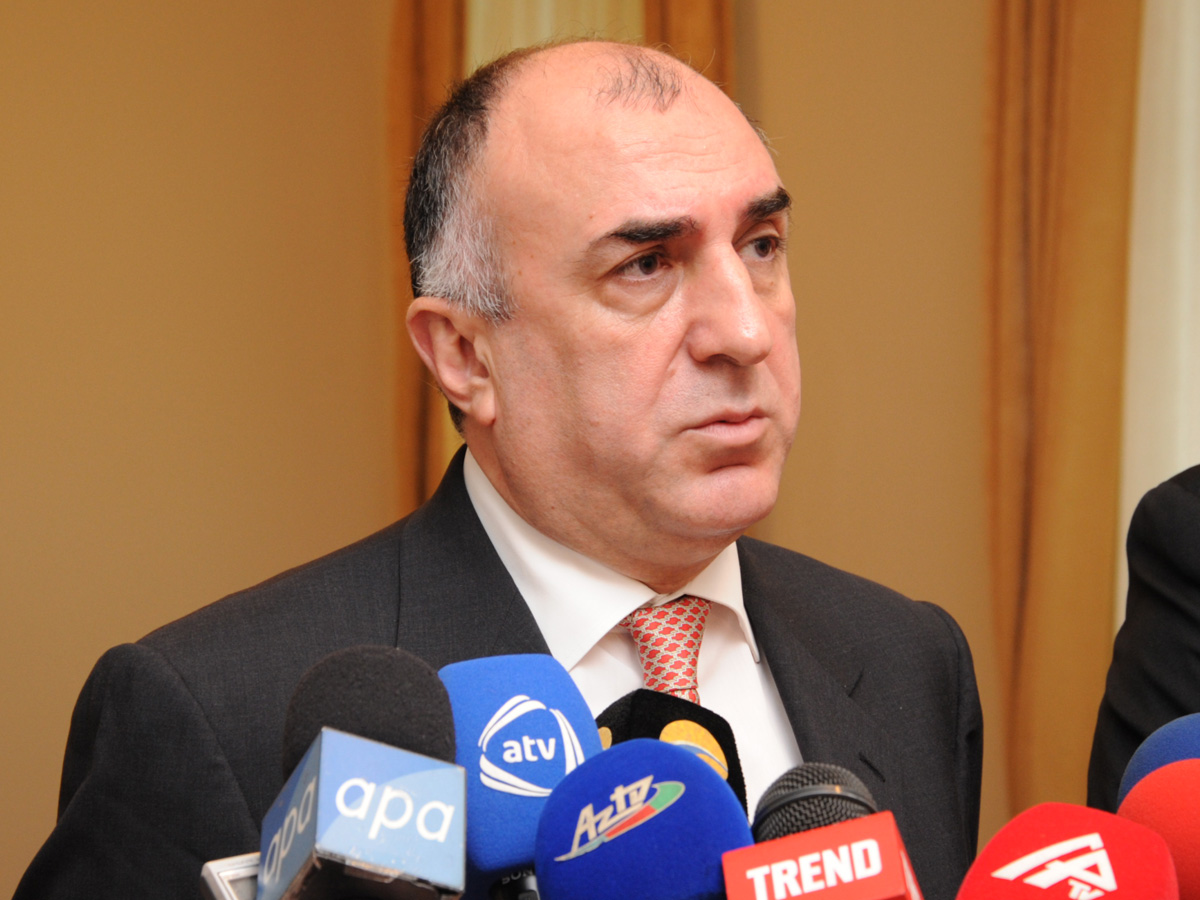Baku, Azerbaijan, May 25
Trend:
Azerbaijan insisted to note, during the Riga declaration's adoption, the role of the four UN Security Council resolutions, which clearly stipulate the demands towards Armenia to withdraw troops from Azerbaijan's occupied territories, said Azerbaijan's Foreign Minister Elmar Mammadyarov.
He made the remarks May 25 at a joint press-conference with Russia's Foreign Minister Sergei Lavrov in Moscow, Russia24 TV channel reported.
"Our European partners said it is too far and detailed, and in that case it will be needed to go through these procedures on other conflicts as well. But we insisted until the last minute," said the minister. "We even said we might not join the declaration."
"Then we reached a compromise that we will make an appropriate statement that is to be added to the text of the final declaration, which will describe the situation given the four resolutions of the UN," said the minister. "In the end, we found a consensus option."
He added that after long debates and work on the final Riga declaration, the Azerbaijani side was convincing until the last moment, to include there, within the Armenian-Azerbaijani Nagorno-Karabakh conflict's context, a form of the conflict's settlement.
"The declaration adopted in Riga, fully supports the territorial integrity, independence and sovereignty of all partner states, notes the role of OSCE Minsk Group co-chairs," said Mammadyarov.
He added that the declaration emphasizes the work carried out by the co-chairs and refers to the previous documents which envisaged that the settlement of the [Nagorno-Karabakh] conflict should be based on the norms and principles of the international law, documents and decisions adopted in this format.
The policy chosen by Azerbaijan - the policy of bilateral cooperation with the EU - is backed by many parameters, including the energy, transport and investment elements, the minister said.
That text of the agreement presented by Azerbaijan to Brussels first of all, plays a role of an equal and mutually beneficial agreement and these relations will be built within these frameworks, Mammadyarov added.
The conflict between the two South Caucasus countries began in 1988 when Armenia made territorial claims against Azerbaijan. As a result of the ensuing war, in 1992 Armenian armed forces occupied 20 percent of Azerbaijan, including the Nagorno-Karabakh region and seven surrounding districts.
The two countries signed a ceasefire agreement in 1994. The co-chairs of the OSCE Minsk Group, Russia, France and the US are currently holding peace negotiations.
Armenia has not yet implemented the UN Security Council's four resolutions on the liberation of the Nagorno-Karabakh and the surrounding regions.
Edited by SI






